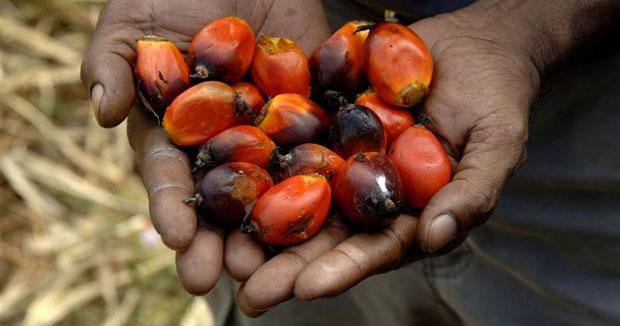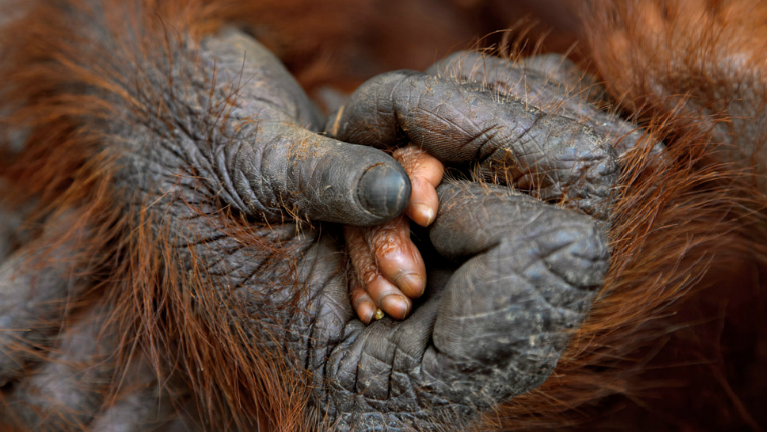Contributing writer for Wake Up World
Found in an astounding array of foods — like baked goods, cookies, chocolate, potato chips and milk — palm oil is in half of the packaged foods that line our supermarket shelves today. It’s also heavily used in cosmetics and toiletries, to increase the feeling of creaminess in products ranging from soap to shampoo, detergents and toothpaste. The oil is used increasingly for biofuel as well. Add to this a high demand in Myanmar and Indonesia as a replacement for coconut and peanut oil, and palm oil tops the list as the most widely used vegetable oil in the world, surpassing even soy.
What most people don’t realize is how damaging the crop is to rain forests, animals and the environment. It’s one of the most destructive crops in the world — and the situation is only becoming worse…
[pro_ad_display_adzone id=”110028″]
A massive industry of environmental devastation
Only able to grow in the tropics and requiring vast amounts of water, oil palms are native to South America and West Africa. However, man-made palm plantations have spread to areas like Papua New Guinea, Kenya and Southeast Asia. It’s an enormous industry, especially in Indonesia, where the oil accounts for 11 percent of its export earnings, making it the country’s third largest export. As profitable as the oil may be, the environment pays an exceptionally high price due to these plantations.
The expansion of palm oil plantations around the world threaten vast areas of tropical rain forests. The two countries most at-risk are Indonesia and Malaysia, both of which are home to endangered orangutans. Several studies by the United Nations Environment Programme (UNEP) and Princeton University in the United States have shown palm oil plantations are causing extreme destruction to the world’s rain forests — where upwards of 60 percent of palm oil expansion is at the expense of primary tropical rain forest. These plantations not only endanger the health of the environment and orangutan populations, but also inflame conflict with local communities over traditional land rights.
Orangutan Foundation International highlights the dire consequences of palm oil production:
“In Sumatra at least 10.8 million hectares have been opened up for palm oil plantations. The situation in Borneo is similar. Large scale conversion of tropical rain forests has had an absolutely devastating impact on biodiversity in both Borneo and Sumatra. In addition, deforestation may cause soil erosion and, because most forests have been cleared through the use of fire, massive air pollution from smoke. Much of the land on which palm oil plantations have been established consists of peat swamp forest. The draining, burning, and conversion of peat swamp forests to palm oil has been especially damaging to the world’s climate as it has led to Indonesia being the third largest contributor of carbon to the world’s atmosphere after China and the United States.”
Palm oil companies tend to clear primary forests — instead of degraded areas — for plantations because the forest land can be cleared by fire, which naturally fertilizes the soil and saves the company money. Over and above that, any timber that’s cut can in turn be sold for a profit. Once the plantation is established, displaced orangutans are often brutally killed as the starving animals try to obtain food in the plantation areas. The animals have been found buried alive, as well as killed by machete and guns. The industry considers orangutans ‘agricultural pests.’ It’s estimated that 50,000 orangutans have died over the last two decades due to palm oil plantations.
Sumatran Tiger, Sumatran Rhinoceros, Sun Bear, Pygmy Elephant, Clouded Leopard and Proboscis Monkey populations have also suffered from the encroachment of palm oil plantations on their natural habitats.
“According to the World Wildlife Fund, an area the equivalent size of 300 football fields of rainforest is cleared each hour to make way for palm oil production. This large-scale deforestation is pushing many species to extinction, and findings show that if nothing changes species like the orangutan could become extinct in the wild within the next 5-10 years, and Sumatran tigers less than 3 years.” [source]
Sustainable palm oil: fact or fiction?
You might have noticed over the last few years the appearance of red palm oil in health food stores being marketed as a healthy cooking oil. Take a closer look at the label and it will say the oil is sustainably harvested and does not impact orangutan habitat. This may ease our minds as consumers, but are these products actually safe for the environment, local communities and animal habitats?
In 2004 the Roundtable on Sustainable Palm Oil (RSPO) established voluntary guidelines to develop less destructive methods of palm oil production — including ways to protect land rights of local people. While they appear promising on the surface, many activists claim the guidelines are simply “greenwashing” the issue — largely because forests continue to be destroyed, wildlife killed and local people jailed after protesting the seizure of their land. In short, it’s just business as usual.
If we truly would like to make an impact, there are several straightforward actions that can be taken today. Have a look at this handy resource list by Say NO to Palm Oil, with practical ways you can live more ethically through your consumption choices.
The Insatiable Demand for Palm Oil
Article sources:
- www.orangutan.org/rainforest/the-effects-of-palm-oil
- www.saynotopalmoil.com
- www.redapes.org/about-orangutans/orangutan-crisis
- www.npr.org/sections/parallels/2015/03/11/392292008/as-palm-oil-farms-expand-its-a-race-to-save-indonesias-orangutans
About the author:
 Carolanne Wright enthusiastically believes if we want to see change in the world, we need to be the change. As a nutritionist, natural foods chef and wellness coach, Carolanne has encouraged others to embrace a healthy lifestyle of organic living, gratefulness and joyful orientation for over 13 years.
Carolanne Wright enthusiastically believes if we want to see change in the world, we need to be the change. As a nutritionist, natural foods chef and wellness coach, Carolanne has encouraged others to embrace a healthy lifestyle of organic living, gratefulness and joyful orientation for over 13 years.
Through her website Thrive-Living.net, she looks forward to connecting with other like-minded people from around the world who share a similar vision. You can also follow Carolanne on Facebook, Twitter and Pinterest.
Further reading from Carolanne Wright:
- The Most Eco-Friendly Nation on the Planet is Now Carbon Negative
- Don’t Ask, Just Plant — Taking Back Our Food Sovereignty with Guerrilla Gardening
- Plastic Waste in the Ocean Will Outnumber Fish by 2050
- Seed Bombs: A Creative (and Fun) Mission to Save the Bees and Butterflies
- Mind Control, Subliminal Messages and the Brainwashing of America
- Autistic Boy with Higher IQ Than Einstein Discovers Gift After Removal from State-Run Therapy
- Monsanto Charged with Crimes Against Nature and Humanity – Set to Stand Trial in 2016
- Dr Sebi: The Man Who Cures Aids, Cancer, Diabetes and More
- Plastic-Eating Mushroom Discovered in the Amazon Rainforest — A Solution for Our Trash Saturated World?
- Big Pharma and Organized Crime — They are More Similar Than You May Think
- Over 100 Scientific Studies Agree: Cannabis Annihilates Cancer
- Emotional Energetic Healing: The Future of Medicine is Here
- Why Every Parent Should Consider Unschooling
- The Greenhouse of the Future: Grow Your Own Food Year-Round With This Revolutionary System
- First U.S. City Produces More Electricity Than It Uses — With 100% Renewable Technology
- CDC Concealed Link Between Thimerosal and Autism for Over a Decade, Forced to Release Incriminating Documents
[pro_ad_display_adzone id=”110027″]









